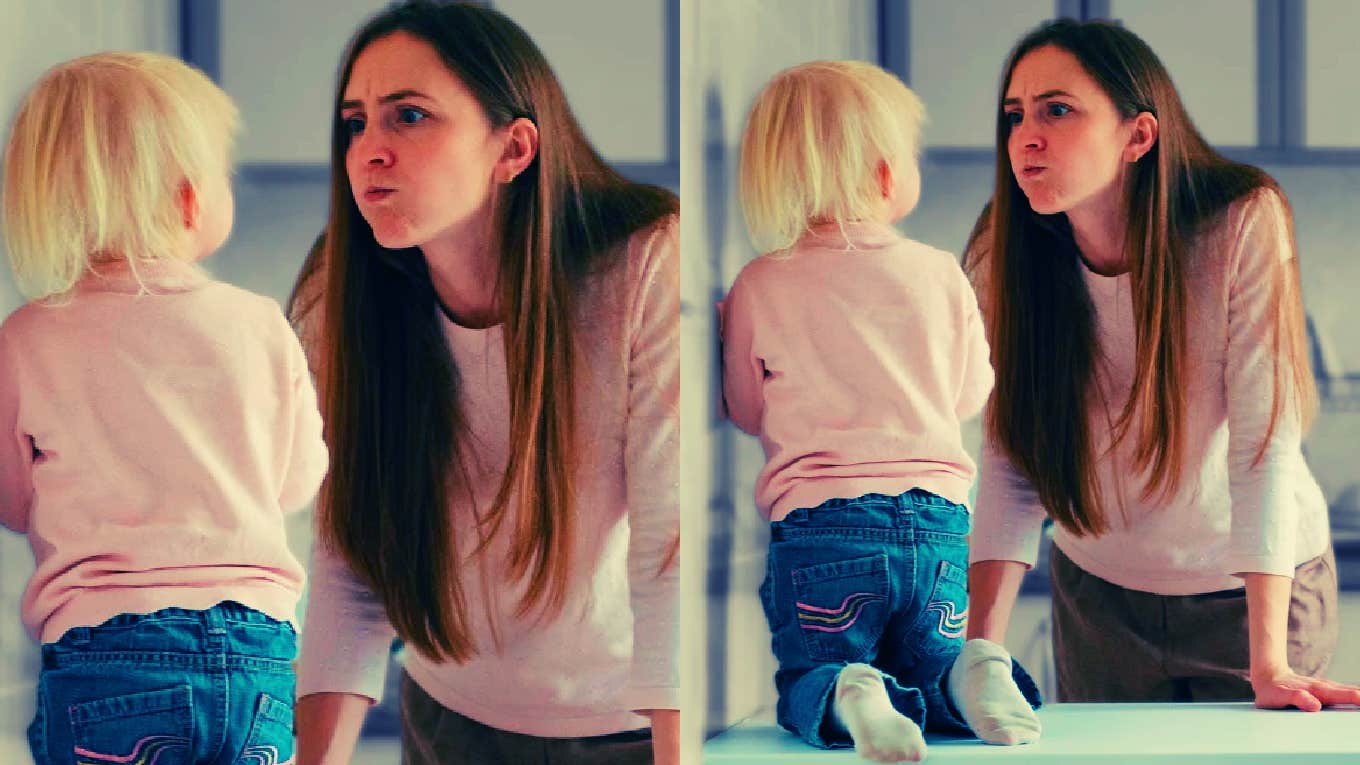5 Things The Behavior That Triggers Your 'Mom Rage' Reveals About Your Own Childhood
When you are feeling angry with your child, you may be reliving difficult emotions from your own past.
 Serhii Yevdokymov via Canva
Serhii Yevdokymov via Canva "Why can’t I control my emotions when my child throws tantrums or disobeys me?”
If you find yourself wondering why it's so hard to keep your cool when your child loses theirs, you're not alone.
It's so common, in fact, that the term "mom rage" pulls up dozens of videos on TikTok.
Certified family wellness and parent coach, Shelly Robinson, shared eye-opening insight on Instagram as to why so many parents feel anger and rage when their children don't behave the way parents want them to.
"It took me years to figure out why, but after diving into inner child healing work, it finally began to click for me that my child not listening to me was actually kicking up dirt from old wounds of how my younger self felt when I wasn’t being heard," Robinson said.
What The Behavior That Triggers Your "Mom Rage" Says About Your Own Childhood
1. If your mom rage is triggered by your child talking back...
When faced with your child talking back, it is normal to experience frustration or anger. Robinson speaks on this reaction and traces it back to childhood, stating, “When our kids 'talk back,' our anger may reveal that our voices were never heard as a child."
If you find yourself reacting strongly, think back to when you were a child. Were there times you didn't feel heard and seen? Try to notice if the memory of that feels similar to how it feels to be talked back to by your own child.
2. If your mom rage is triggered by your child not listening...
The frustration of your child not listening can be overwhelming, and it can also trigger anger if you felt as a child you were not listened to.
It can feel very personal when it has nothing to do with you at all.
Pediatrician Dr. Cooper White says, “There are dozens of reasons why a child may not listen in the moment or on a particular day, but a repeated pattern of not listening could be a sign of something else. Getting a child’s language skills and hearing assessed is a great first step."
3. If your mom rage is triggered by your child pushing boundaries...
Most parents have experienced their own boundaries being disrespected at some point in their lives.
Grappling with children who push boundaries may evoke memories of struggle when you were a child and your boundaries weren't respected by the adults in your life.
4. If your mom rage is triggered by your child disagreeing with you...
Disagreements with your child can be emotionally charged, triggering parental frustration and anger.
This could be because you were not allowed to disagree with adults as a child, or it wasn't safe for you to.
5. If your mom rage is triggered by your child acting out in public...
When your children act up in public, the hot rage you feel bubble up inside you may have little to do with your child and a lot to do with your fear of judgment from others.
Robinson says, "When our kids act out in public, our anger may reveal our own parent-imposed shame for melting down in public."
Understanding how your current emotions connect to past experiences will help you respond more thoughtfully in the present moment.
It's okay to feel angry and frustrated, but it's important to remember that how you respond to these feelings will impact how your children feel about these same frustrations with their children down the road.
Instead of communicating your displeasure by hitting or yelling at your child, take a deep breath and regulate your emotions.
It is important to create a safe place for your children to feel vulnerable. Even if it is triggering, keeping your emotions in check is key to maintaining a healthy parent-child relationship.
Parenting is a continuous learning process, and understanding the origins of parental triggers can pave the way for more effective and compassionate responses.
Marielisa Reyes is a writer with a bachelor's degree in psychology who covers self-help, relationships, career and family topics.

